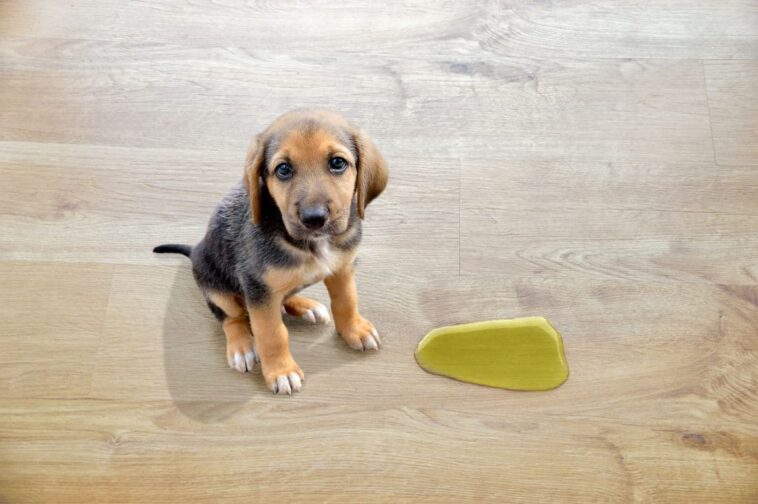Finding traces of urination and the associated bad odors on the sofa, the bed or a carpet is an unpleasant surprise that we could do without. And if small accidents can sometimes occur in older dogs, they can become more annoying when they multiply and our pet becomes permanently messy. We can then ask ourselves why a dog that was clean is no longer clean and how to manage this situation? These are precisely the two points that we will address in this article so that the dog finally stops peeing everywhere in the house (or always in the same place). These few tips can also be useful if the neighbor’s dog comes to urinate in front of your house or in your garden.
Why does a teenage or adult dog pee in the house?
Our pets need time to potty train as babies. Puppies may have difficulty controlling their sphincters until they are around 4 to 6 months old (although this can vary from animal to animal). So you have to be patient! If an adolescent or adult dog urinates indoors, understanding the causes most often allows us to provide a solution and to prevent your pet from developing bad habits that will later be very difficult to get them to break. When it is sudden or recurring, this problem may be linked to:
-and health problem (urinary infection, polyuro-polydipsic syndrome, neurological problem, hormonal imbalance, kidney failure, etc.),
-strong emotions (stress, anxiety, fear, excitement or unusual noise),
-and behavioral disorder or separation anxiety,
-a lack of education (imperfect or incomplete toilet training),
-incontinence in older dogs,
-territorial marking (which castration can sometimes reduce),
-of the too infrequent outings (for example if you don’t take him out in the evening, the dog may urinate in the house during the night, because his bladder is too small for him to hold it).
In all cases, consulting a veterinarian is a first step. to rule out possible health problems. A behaviorist can then provide a complementary approach to behavioral problems.
Attitudes to ban when faced with a dog that has peed inside the house
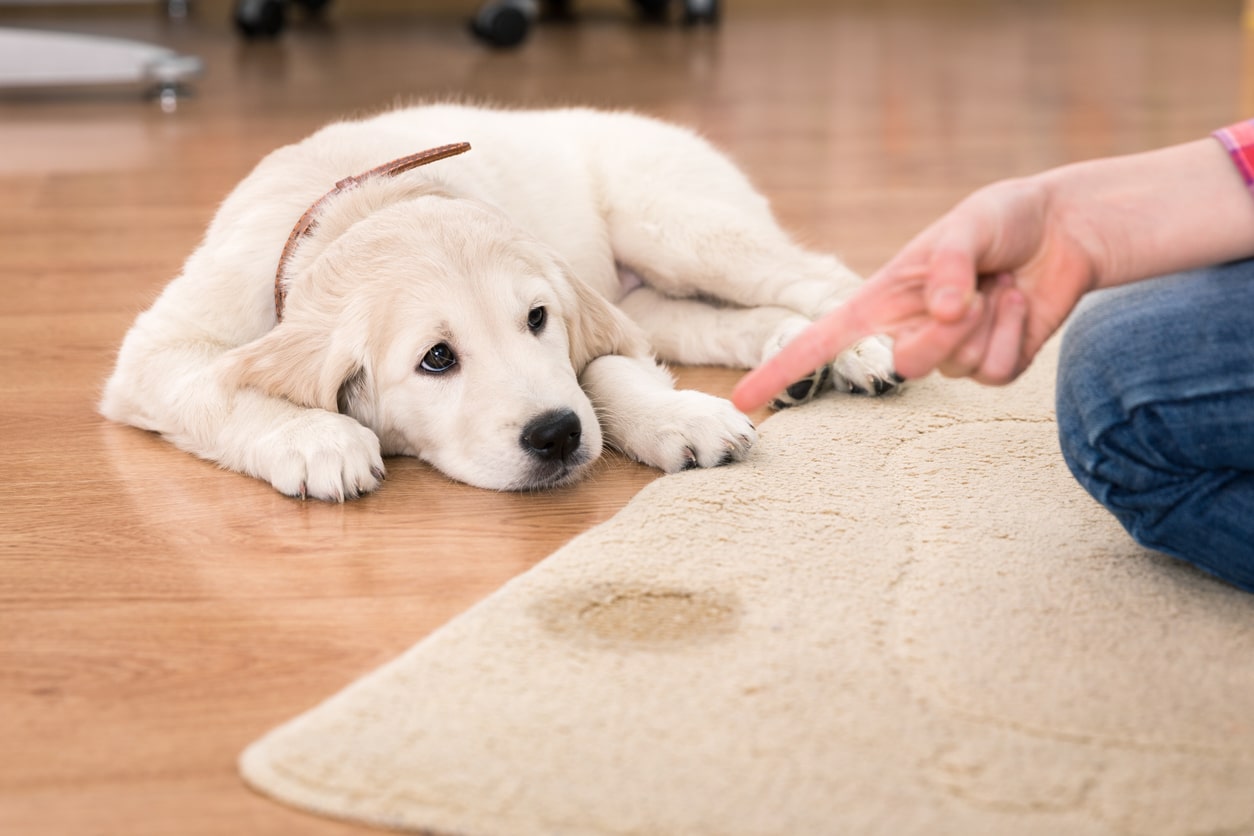
1) Not having a fixed schedule
Respecting fixed times for meals and walks is very important for these very routine pets. These little habits bring them landmarks and a feeling of security. Avoid disrupting this routine as much as possible.
2) Don’t stop him from drinking
Hydration is vitale for your little four-legged friend. Restricting access to your bowl should therefore be avoided, especially as this can increase the risk of cystitis… and therefore uncontrollable peeing! Drinking enough allows you to eliminate harmful bacteria in your body. So, leave him his bowl of water, because depriving him absolutely will not solve the problem.
3) Violence towards a dog that pees in the house? Never !
If you catch your pet in the act, tell him “no” in a firm voice and show him where he should urinate. On the other hand, if you have not seen him relieve himself, the act of insulting him will be of no use. He won’t associate your attitude with his stupidity and will just think that you’re sometimes in a bad mood when you come home, which can scare him. Poking his nose in, yelling at him, hitting him or any other form of violence is prohibited in dog training. Your dog could actually feel increased anxiety and therefore urinate even more, this time in secret. In addition, it breaks your trust relationship and can make the animal fearful or aggressive.
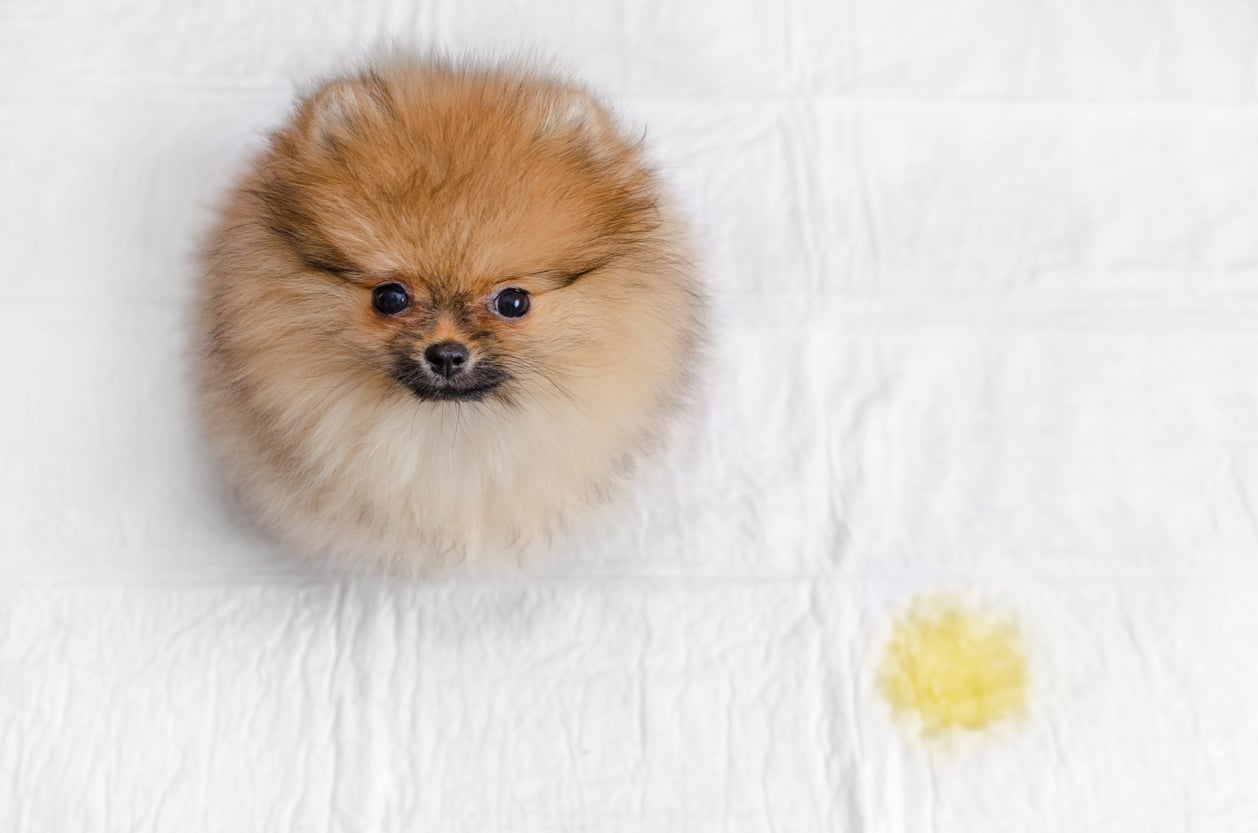
4) Clean up the pee in front of him
Never clean up his pee or droppings in front of him, as he might take it as a game. encourage him to start again. Prefer to block access to the room or isolate it while you clean out of sight. Here you can combine white vinegar and sparkling water to clean, remove stains and deodorize soiled surfaces.
5) Using bleach on dog pee at home
You may already know that bleach attracts cats! This is also why we do not clean cat pee with it and why we put a few drops in the litter box to encourage them to go there. For dogs, it’s a bit the same thing. Bleach will indeed fix odors and your dog will want to go back quickly.
How to stop a dog from peeing all over the house?
1) Place your bowls intelligently
Dear Médor always urinates in the same corner? In this case, be aware that our animals do not like to relieve themselves where they eat. To take advantage of this, try placing food and water bowls in areas of the house where your dog usually pees. After a few days, he will understand that he should not urinate in these areas and you can put the bowls back in their usual location.
Good to know: if the pee is on the bed or an armchair, you can instead try applying a sheet of aluminum foil. Dogs and cats hate it and avoid going near it.
2) White vinegar to clean dog pee in the house and prevent recurrence
White vinegar is as effective for cleaning urine stains as it is for its deterrent effect on dogs. Used pure or diluted, it can tickle his nose and act as a natural repellent.
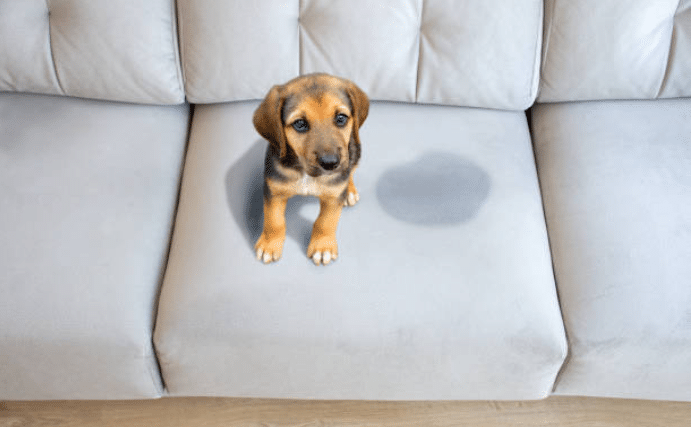
3) Lemongrass and citrus fruits
Unfortunately, there is no no universal solution that works on all dogs. Very effective on felines, that which consists of using lemongrass or citrus fruits can receive more mixed results in our canine companions. However, it’s worth a try! For example, put drops oflemongrass essential oil where you want to avoid pees. Alternatively, you can add ten drops of essential oil and the juice of five lemons to a liter of water in a sprayer. You can spray it on the affected areas. Finally, you can also put citrus wedges in cups in places where your pet has relieved himself.
4) Essential oils
Dilute about ten drops of essential oil of peppermint, lavender, lemon, eucalyptus or even lavender in a liter of water in a spray bottle and spray this mixture on the area to be protected. Caution, do not spray the mixture on your pet and do not use no essential oils near a catbecause these products are very toxic for felines.
5) Pepper, mustard or garlic
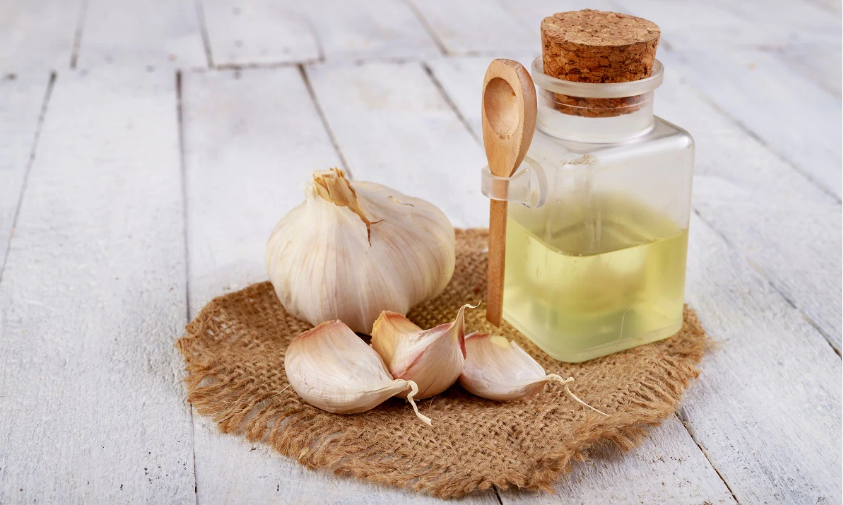
With their strong, pungent smellpepper, mustard and garlic are very displeasing to dogs and can act as natural repellents. To do this, sprinkle ground pepper in the areas where your pet urinates or add it to your cleaning water. As for the mustard, add two good spoons of mustard to a liter of water, shake well and spray this liquid where needed. Finally, for the garlic, boil 1 liter of water with two crushed garlic cloves, leave everything to macerate for two weeks off the heat, filter and bottle your repellent solution.
6) Sulfur flower against dog pee problem at home
To stop unwanted peeing, buy sulfur flower from a garden store and sprinkle it effective natural repellent on dogs and cats in front of the door or in the place where the animal usually does its business (foot of the wall, living room floor, flower bed, etc.).
7) Put unlabeled plastic water bottles in front of the door
If your neighbors’ dog always pees in front of your house door, place water bottles in busy areas to dissuade him.
8) Use coffee grounds
Let the coffee grounds air dry and sprinkle them in your garden or on your terrace in places where the dog is used to doing its business. Indoors, prefer to put it in carefully arranged cups and change it regularly. The smell of coffee will dissuade your doggies from urinating on your furniture.


